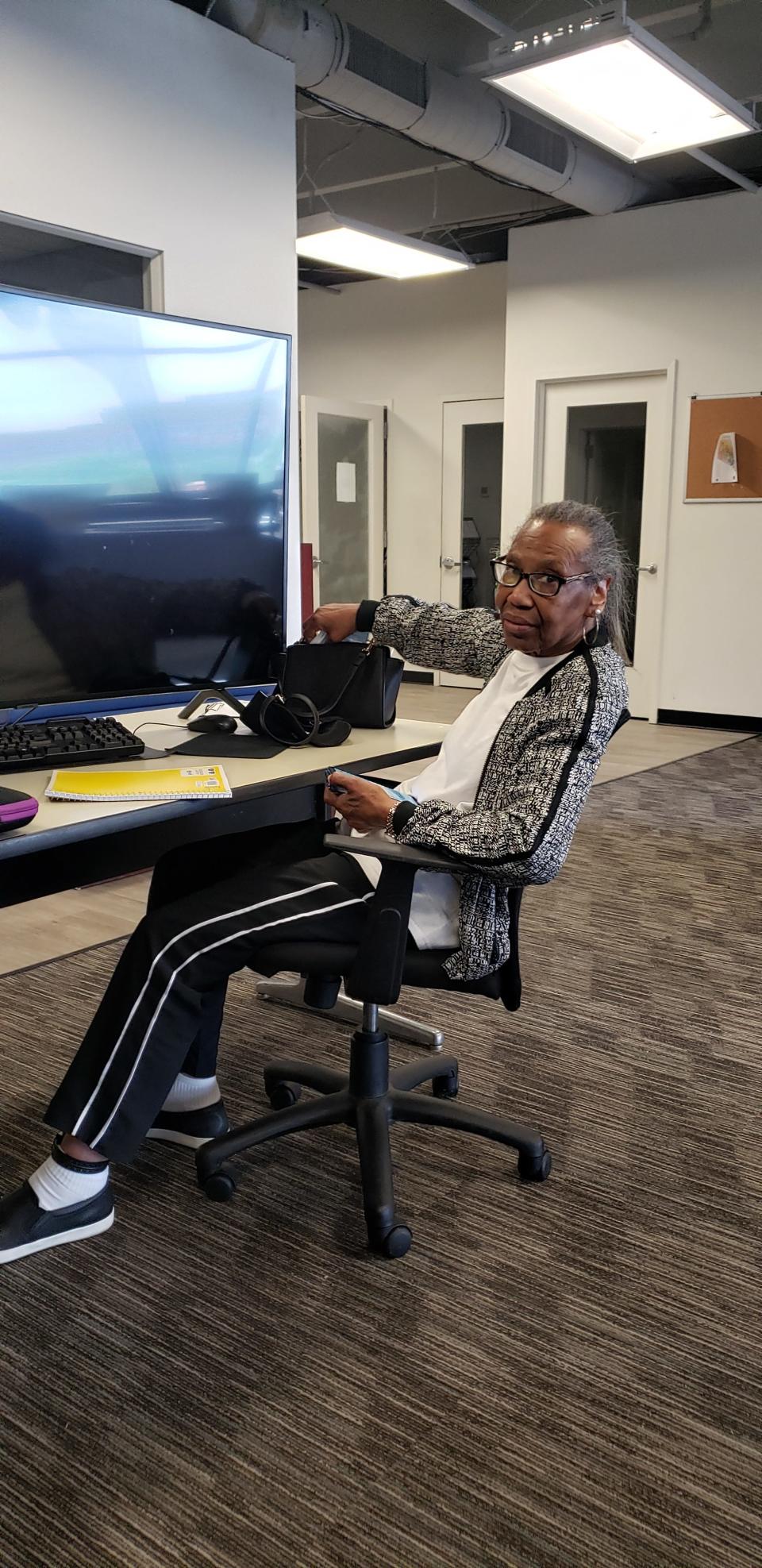'Scared and confused': Elderly inmate sent home during COVID is back in prison after going to computer class
WASHINGTON – Gwen Levi left prison last year, believing it was for good. She volunteered for several criminal justice groups and began learning how to use a computer.
On June 16, about a year after the Justice Department allowed her to serve her sentence at home because of the coronavirus pandemic, Levi was re-arrested for violating the terms of her home confinement, her attorney, Sapna Mirchandani said.
Levi attended a computer class in Baltimore four days earlier, believing she had been approved to do so. Officials at her halfway house pinged her ankle monitor and called her several times after realizing she wasn't home. But Levi had turned her phone off while in class, and her ankle monitor didn't go off, her attorney said. She was unreachable for several hours.
A Bureau of Prison report described the incident as an "escape." Levi is now at a Washington, D.C. jail, waiting to be transferred to a federal facility, where she will presumably serve the remaining four years of her sentence. She's 76.
"She was shocked, scared and confused," Mirchandani said. "What really bothers me is that when I spoke to her case manager, they don't contend that she was not where she said she was."
Advocates say Levi's re-arrest is unjust and underscores rigid home detention rules that can cause even well-intentioned inmates to fail. It's also a harsh reminder of the legal limbo she and thousands of others have found themselves in.
More: Inmates sent home during COVID-19 got jobs, started school. Now, they face possible return to prison
Levi is among the 24,000 nonviolent federal prisoners who, under the Trump administration, were allowed to serve their sentence at home to slow the spread of COVID-19 inside prison walls. But a Justice Department memo issued in the final days of the Trump administration says inmates whose sentences will extend beyond the pandemic must be brought back to prison. The Biden administration has yet to take action despite calls from advocates to rescind the memo, which they believe contradicts President Joe Biden's campaign promise to allow people with criminal pasts to redeem themselves.
The majority of the prisoners have already finished their sentence while on home confinement, but about 4,500, including Levi, have years left to serve. Some have gone back to school and secured full-time jobs but fear the lives they've started to rebuild will soon be upended.
"The other people on home confinement are seeing what happened to Gwen, and they're scared to death," said Kevin Ring, president of Families Against Mandatory Minimums. "This is going to keep happening if the president doesn't act and that's been our problem the whole time. You cannot leave these people twisting in the wind like this."
A Bureau of Prisons spokeswoman declined to comment.

'To send her back is absurd'
Since the Justice Department legal memo was issued in early January, advocates have been calling for Attorney General Merrick Garland to reverse it. But the administration does not believe the issue is urgent. The Justice Department said last month that inmates with years left to serve are not likely to be sent back to prison anytime soon because the public health crisis is expected to last for the rest of the year.
Still, ramped up vaccination efforts and reopening of cities have set off alarm bells among prison advocates.
In an earlier interview with USA TODAY, Levi said sending her back "would shut down down all the progress" she was making.
"We're beginning to think about things for the future. To have to go back to the past would be devastating," she said.
Levi is also in remission from lung cancer and has degenerative joint disease, hypertension and cataracts.
"If Gwen technically violated the rules, they still had a choice to make," Ring said. "Do you send a 76-year-old cancer surviving grandmother back to prison for what will cost taxpayers hundreds of thousands of dollars? … To send her back is absurd."
Levi was serving more than 30 years for drug conspiracy charges. Her sentence was reduced to 24 years as part of the First Step Act, a Trump-era criminal justice bill that shortened punishments for nonviolent drug crimes.
Ring said his group has asked the Bureau of Prisons to reverse its decision, but to no avail. Levi also has a pending petition for compassionate release, which her attorney fears could be jeopardized by her re-arrest.
"Her family is devastated … She's really, really worried about her mother. She said she can handle this. She can handle being in prison again, but she feels like this is crushing her 94-year-old mother," Mirchandani said.
Mirchandani also said the president should use his broad powers and grant clemency to the remaining 4,500 people who face the possibility of going back to prison. But granting clemency to thousands of prisoners just after the Biden administration unveiled an anti-crime strategy amid rising gun violence could backfire.
"It seems like a waste of human life and taxpayer dollars to call them back to prison," Mirchandani said. "It doesn't make any sense."
This article originally appeared on USA TODAY: COVID-19: Gwen Levi back to prison after a year on home confinement

